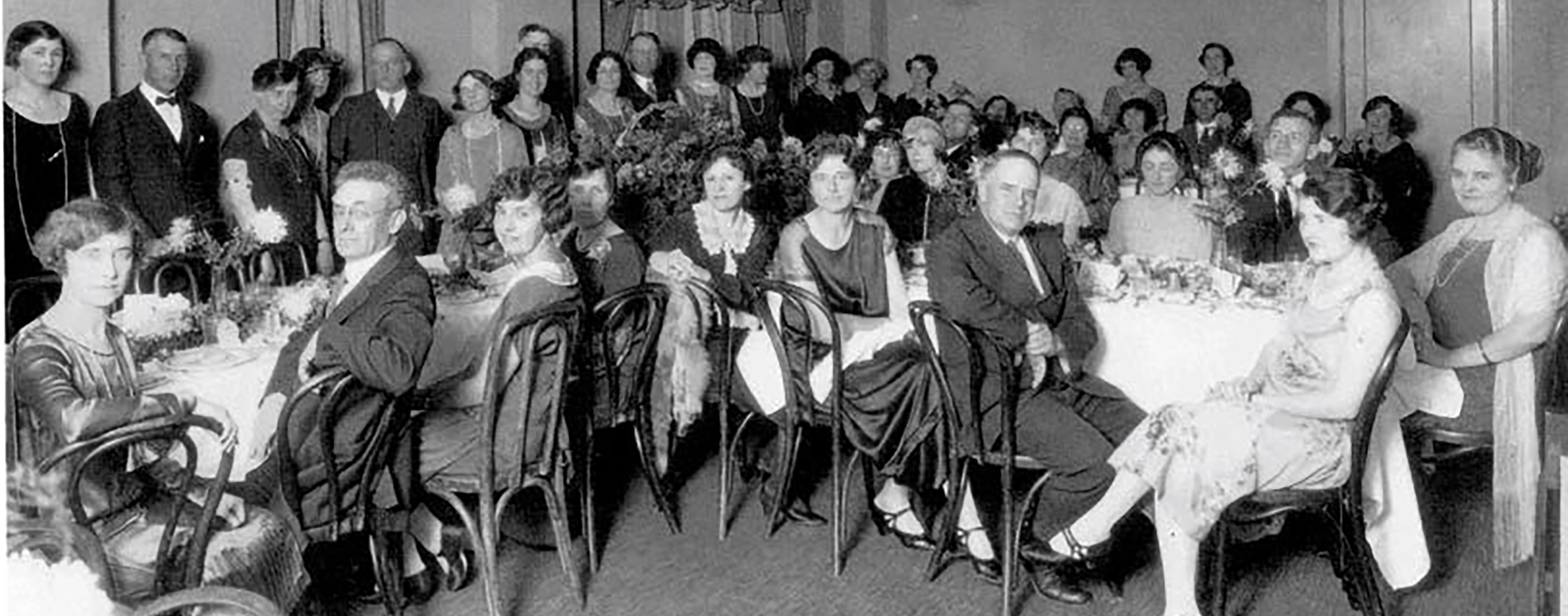Our Roots

By Julie Snider
In 1922, some 20 Sacramentans took a short story course taught by Professor Raymond of the University of California Extension. When the class ended, they banded together and called themselves the Sacramento Writers Club. They met twice a month in homes to review each other’s work. As the group grew in popularity, it moved to the Business and Professional women’s clubroom at the St. Francis Hotel at 10th and I.

Three years later, Mary Mills West, who wrote for women’s magazines and advocated prenatal care, came to Sacramento to conduct a writing class. Impressed that the group was selling to periodicals, she encouraged them to apply for membership in the California Writers Club based in Oakland.
But travel to Oakland to attend meetings required navigation 147 miles of rolling hills, pastures, and farmland. The train could be exceedingly hot or cold. For those with automobiles, the drive was long and dusty. Roads were little more than trails and mud holes shared by mule-drawn carts, horses, and pedestrians.
To address this problem, Harry Noyes Pratt, President of the California Writers Club, suggested that Sacramento consider its own charter, “Branch #1,” an off-shoot of the club. He advised the group of excited writers to set up a monthly study meeting and dinner schedule to conform with the parent club in Oakland.
Pratt, a poet, a lyricist, and Executive Secretary in the League of Western Writers, and who would one day ascend to curator of Sacramento’s Crocker Art Museum, found Sacramento glistening with appeal: a location for Hollywood filmmakers, home to the California Gold Rush and the Pony Express, and site of the state’s political heart. Sacramento had the nation’s first long-range electrical distribution lines and an economy fueled by agricultural, manufacturing, and transportation industries.
Pratt knew everyone: Jack London, George Sterling, Ina Coolbrith, Joaquin Miller, Herman Whitaker, Austin Lewis, Charles Stoddard, and Edwin Markham, all of whom inspired the formation of the California Writers Club. Pratt sat at the helm of the Overland Monthly and OutWest Magazine. Area authors, bookstores, publishers, and distributors fueled a coveted West Coast literary genre, documented by Sacramento-Folsom-born Ella Sterling Cummins Mighels in The Story of the Files A Review of California Writers and Literature. In 1913 the California State Legislature named her “First California Literary Historian.”
Also known to Pratt were Auburn’s Clark Ashton Smith, publisher Harr Wagner, Julia Cooley Altrocchi, Charles Keeler, Mary Austin, Kathleen Norris, Ina Coolbrith, California’s first Poet Laureate and Henry Meade Bland, the second. Bohemian Maynard Dixon, who produced murals for the California State Library, contributed artwork to the club’s 1914 Westwinds.
To convert to a branch of the California Writers Club, a charter was prepared. Records show October 31, 1925, as the date that Pratt traveled to Sacramento to sign the branch charter.
Forty years later, many of the original charter members would still be active.
To kick-start the new club, an “Affiliation Dinner” was held on Halloween night, when Pratt came to town to sign the Sacramento charter. The Senator Hotel, considered one of the finest on the coast, dazzled with marble pillars and Terrazzo marble floor. Silver and china sparkled under the light of chandeliers while soloist Mispah Nathan sang. Reporters from the Bee and the Union attended. Officers and members from the California Writers Club in Oakland made the trip with Pratt and his wife Nita: among them, Mary Mills West, Dr. Derrick Lehmer and wife, and Mrs. Esther Birdsall-Darling, who organized the first long-distance dogsled race in Alaska and wrote seven books and numerous poems.
Attendees represented a spectrum of arts: poets, photographers, lyricists and composers, playwrights, novelists, journalists, and writers of textbooks, and policy documents. Their work appeared in popular magazines like Argosy and Ladies Home Journal and in newspapers including the Sacramento Bee and the Sacramento Union.
Stepping into the presidency was Edna W. Becsey, as announced in a publication called the San Francisco Newsletter, Jan 1926:
“Edna Wilson Becsey, the brilliant young writer who has just been elected president of the Sacramento Branch of the California Writers Club, is planning a splendid session of the organization to take place in the Capitol City soon. Ms. Becsey is the presiding officer of the first branch to be established by the California Writers Club and has already launched her group of writers into a season of activity. An elaborate dinner was given recently at the Senator Hotel in Sacramento …Prominent citizens of Sacramento as well as noted authors, artists, and musicians were seated with the president and her executives.”
No responses yet